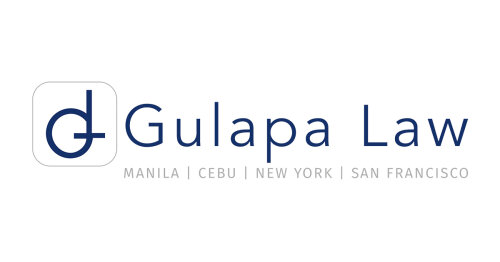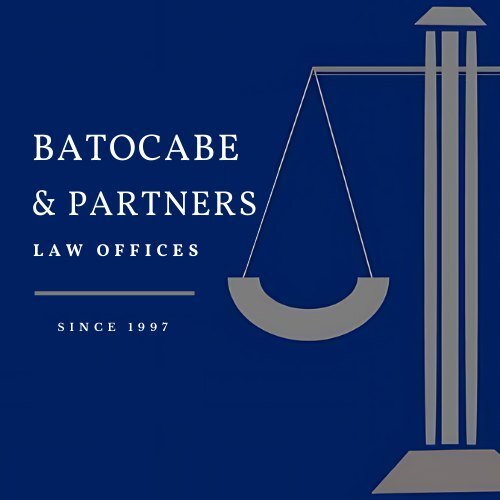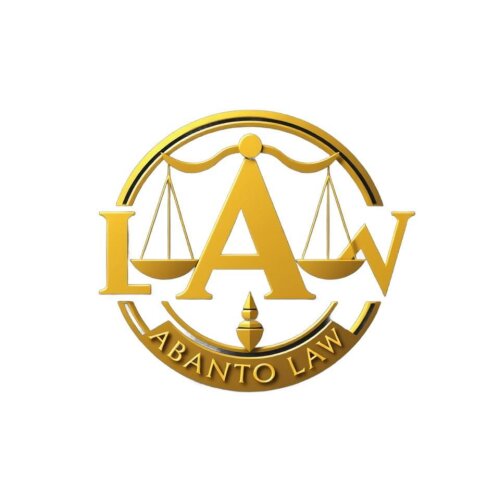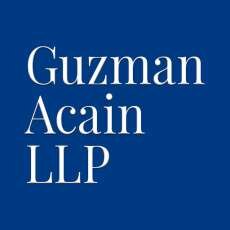Best Disability Lawyers in Philippines
Share your needs with us, get contacted by law firms.
Free. Takes 2 min.
Or refine your search by selecting a city:
List of the best lawyers in Philippines

Dagsaan Monterde Castillo Law and Notary Public (DMC LAW)
15 minutes Free ConsultationAbout Disability Law in Philippines
Disability law in the Philippines is designed to protect the rights of persons with disabilities (PWDs) and ensure their full and equal participation in society. The primary legal framework for disability rights in the Philippines is the Magna Carta for Disabled Persons (Republic Act No. 7277), which outlines the responsibilities of the government and society toward individuals with disabilities. This law is complemented by several other regulations and policies aimed at promoting accessibility, inclusion, and equal opportunities for PWDs in various aspects of life, including employment, education, health, and public infrastructure.
Why You May Need a Lawyer
Individuals may require the assistance of a lawyer specializing in disability law for several reasons:
- Understanding of Rights: To fully understand the rights provided under the Magna Carta for Disabled Persons and related legislation.
- Workplace Discrimination: When a PWD faces discrimination or unfair treatment in the workplace due to their disability.
- Educational Access: In cases where a PWD is denied access to educational facilities or reasonable accommodations.
- Public Service Denial: When access to public services or places is denied, limiting mobility and inclusion.
- Disputes Over Government Benefits: For assistance in securing disability-related benefits or appealing benefit denials.
- Legal Representation: When needing representation in legal disputes regarding disability rights.
Local Laws Overview
Key aspects of disability-related laws in the Philippines include:
- Magna Carta for Disabled Persons (RA 7277): Establishes comprehensive rights for PWDs, including employment, education, health, and access to public infrastructure.
- Batas Pambansa Blg. 344: Also known as the Accessibility Law, mandates the establishment of facilities and services in public and private buildings for PWDs.
- Republic Act No. 9442: Grants additional privileges and incentives to PWDs, including discounts on goods and services.
- Republic Act No. 10524: Amends the employment provisions of the Magna Carta, encouraging private employers to hire PWDs and offering corresponding tax incentives.
- Republic Act No. 11228: Institutionalizes a comprehensive program for PWDs to ensure access to healthcare and rehabilitation services.
Frequently Asked Questions
What is the definition of a Person with Disability in the Philippines?
A Person with Disability in the Philippines is defined as someone suffering from restrictions or lack of ability to perform an activity in ways considered normal for a human being, due to physical, mental, or sensory impairments.
What privileges do PWDs enjoy under Philippine law?
PWDs are entitled to various privileges, including discounts on medical and dental services, transportation, hotels, and restaurants, as well as access to social services and employment incentives.
Are there any employment quotas for PWDs in the Philippines?
Yes, government agencies are required to set aside at least 1% of the total positions for PWDs, encouraging an inclusive workforce.
How can a PWD file a complaint about discrimination?
PWDs can file a complaint with the National Council on Disability Affairs (NCDA) or seek legal counsel for guidance on the appropriate action.
What is the role of local government units in disability matters?
Local government units are tasked with implementing programs that promote the welfare and development of PWDs, ensuring accessibility and inclusivity at the local level.
How can a PWD obtain an ID to avail of benefits?
A PWD can apply for a PWD ID at their local city or municipal social welfare office by submitting the necessary medical certificates and personal identification.
What is the penalty for violating disability laws in the Philippines?
Non-compliance with disability laws may lead to penalties including fines and imprisonment, depending on the gravity of the offense.
What legal remedies are available if a PWD is denied access to public places?
A PWD can seek legal redress by filing a complaint with the Commission on Human Rights or through the local courts to address violations of the Accessibility Law and related legislation.
How does the government support inclusive education for PWDs?
Through policies such as the Department of Education’s Inclusive Education program, the government supports the integration of PWDs into mainstream schools, requiring reasonable accommodations and support services.
Can PWDs seek exemptions from taxes?
Yes, PWDs and their benefactors can avail of certain tax exemptions under Republic Act No. 10754, which was enacted to further enhance the benefits and privileges of PWDs.
Additional Resources
For more information or assistance, PWDs may contact the following organizations:
- National Council on Disability Affairs (NCDA): The lead agency on disability welfare and development.
- Department of Social Welfare and Development (DSWD): Provides social services and support for PWDs.
- Philippine Coalition on the UN Convention on the Rights of Persons with Disabilities (CRPD): An advocacy group supporting disability rights.
Next Steps
If you need legal assistance or advice on disability-related issues, consider the following steps:
- Identify the specific issue or rights concern you are facing.
- Gather all necessary documentation related to your case, such as medical records, identification, and any correspondence regarding the issue.
- Consult with a lawyer specializing in disability law to discuss your situation and explore potential legal remedies.
- Consider contacting relevant organizations and government bodies for additional support and resources.
- Follow any legal advice or action plans as recommended by your legal counsel to address your concerns effectively.
Lawzana helps you find the best lawyers and law firms in Philippines through a curated and pre-screened list of qualified legal professionals. Our platform offers rankings and detailed profiles of attorneys and law firms, allowing you to compare based on practice areas, including Disability, experience, and client feedback.
Each profile includes a description of the firm's areas of practice, client reviews, team members and partners, year of establishment, spoken languages, office locations, contact information, social media presence, and any published articles or resources. Most firms on our platform speak English and are experienced in both local and international legal matters.
Get a quote from top-rated law firms in Philippines — quickly, securely, and without unnecessary hassle.
Disclaimer:
The information provided on this page is for general informational purposes only and does not constitute legal advice. While we strive to ensure the accuracy and relevance of the content, legal information may change over time, and interpretations of the law can vary. You should always consult with a qualified legal professional for advice specific to your situation.
We disclaim all liability for actions taken or not taken based on the content of this page. If you believe any information is incorrect or outdated, please contact us, and we will review and update it where appropriate.
Browse disability law firms by city in Philippines
Refine your search by selecting a city.















